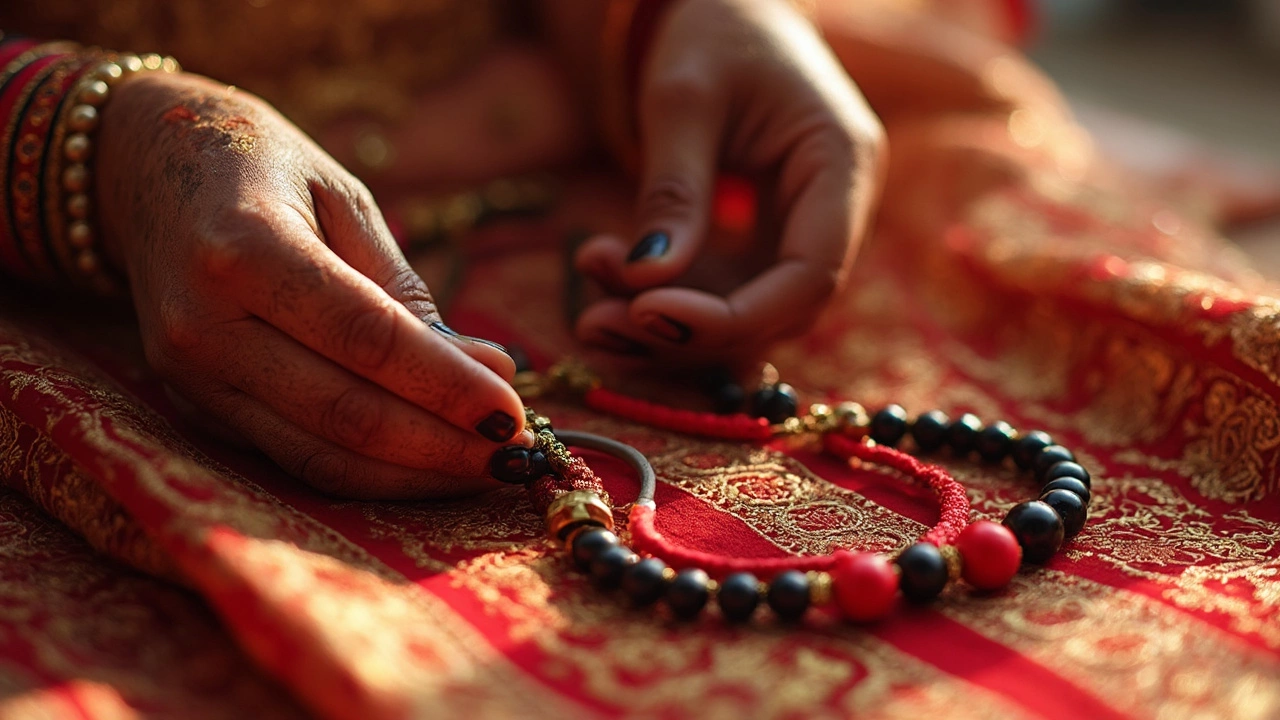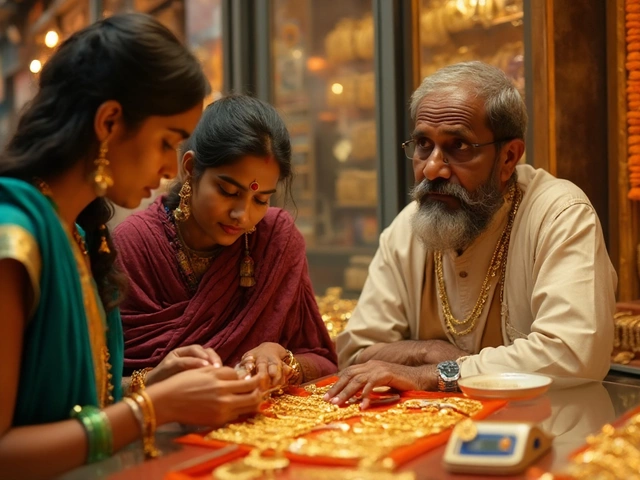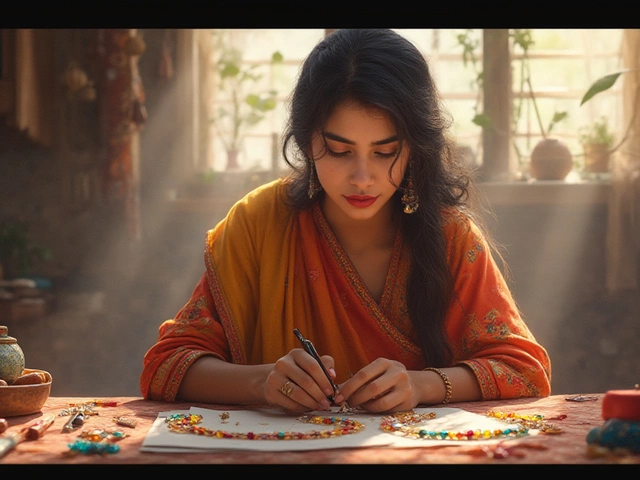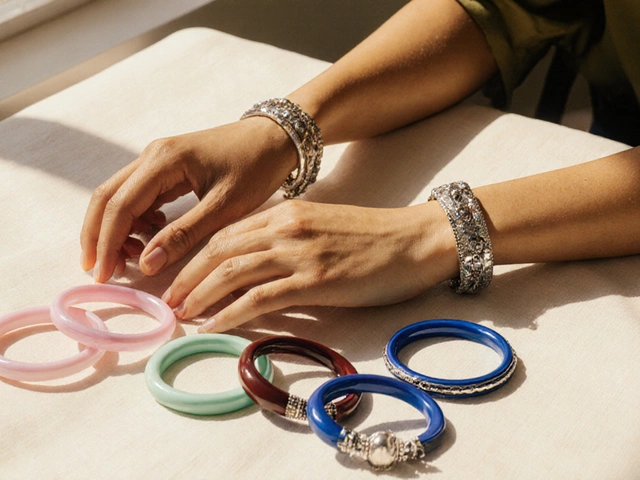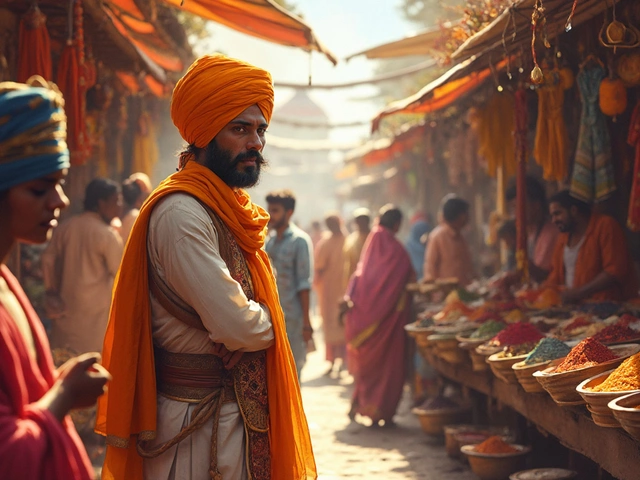Red Beads: What They Mean and How to Wear Them
Red beads have been a staple in Indian jewellery for centuries. They aren’t just a splash of colour – they carry cultural weight, add a pop to any outfit, and can even boost the value of a piece. If you’re wondering why a simple bead matters, this guide will break it down in plain language.
Why Red Beads Matter
In many Indian traditions, red represents love, power, and protection. That’s why you’ll see red beads threaded into mangalsutras, bangles, and necklaces. They’re believed to ward off negative vibes and keep the wearer safe. Over time, the red hue also became a sign of prosperity, especially when mixed with gold or silver.
Red beads also serve a practical purpose. Their bright colour makes them easy to spot on a tangled chain, saving you minutes of frustration. Designers love them because they contrast nicely with both precious metals and other gemstones, giving a piece a balanced look.
Choosing Quality Red Beads
Not all red beads are created equal. The most prized ones are made from natural gemstones like ruby, garnet, or coral. These stones have a deep, consistent colour and a solid feel. If you’re on a budget, glass or synthetic beads can still look great, but check the finish – a glossy coating can chip over time.
Here’s a quick checklist when you shop:
- Check the weight. Natural stones feel heavier than glass.
- Look for a smooth, even surface. Rough spots may indicate cheap manufacturing.
- Ask about the source. Reputable sellers will tell you if the beads are genuine ruby, garnet, etc.
- Inspect the drill hole. A clean, round hole means the bead won’t crack when you string it.
If you’re buying online, read the product description carefully and look for photos that show the bead from multiple angles. A clear return policy is a good sign that the seller stands behind the quality.
Styling Red Beads with Your Wardrobe
Red beads are surprisingly versatile. Pair a beaded necklace with a plain white kurta for a subtle pop, or match a red‑beaded bangles with a gold suit for an evening look. The key is balance – let the beads be the focal point and keep the rest of the jewellery minimal.
For daily wear, try a thin red‑beaded chain under a crew‑neck tee. It adds a touch of tradition without feeling heavy. When you’re dressing up for a wedding, a multi‑strand red‑beaded necklace layered with gold can mimic the opulence of classic Indian bridal jewellery.
Don’t forget your accessories. A red‑beaded clutch or a shoe charm can tie the whole outfit together. If you’re hesitant about a full‑on red look, start with a single red bead stud in your ear – it’s subtle yet meaningful.
Caring for Red Beads
Take a few minutes each week to keep your beads looking fresh. Wipe them with a soft cloth after wearing them, especially if you’ve been in sweat‑heavy environments. For natural stones, avoid harsh chemicals; a mild soap solution and a gentle rinse work fine.
Store beads separately from other jewellery to prevent scratches. A small pouch or a bead box with compartments is ideal. If you notice a bead loosening on a chain, get it re‑drilled by a professional before it falls off.
By following these simple steps, your red beads will stay vibrant and durable for years, whether they’re part of a heirloom mangalsutra or a trendy casual necklace.
In short, red beads blend tradition, style, and a bit of superstition into one tiny package. Knowing how to pick, wear, and care for them turns a simple accessory into a meaningful statement piece.
Mangalsutra Red Beads: Why They Matter in Design
Wondering why mangalsutras have those striking red beads? This article breaks down the real reason behind their use, exploring the cultural roots, symbolism, and even modern takes on this tiny but meaningful detail. Discover how the design blends tradition with practicality, and what to keep in mind if you’re buying or customizing one today. If red beads caught your eye in a mangalsutra, you’ll leave knowing exactly why they’re there.
